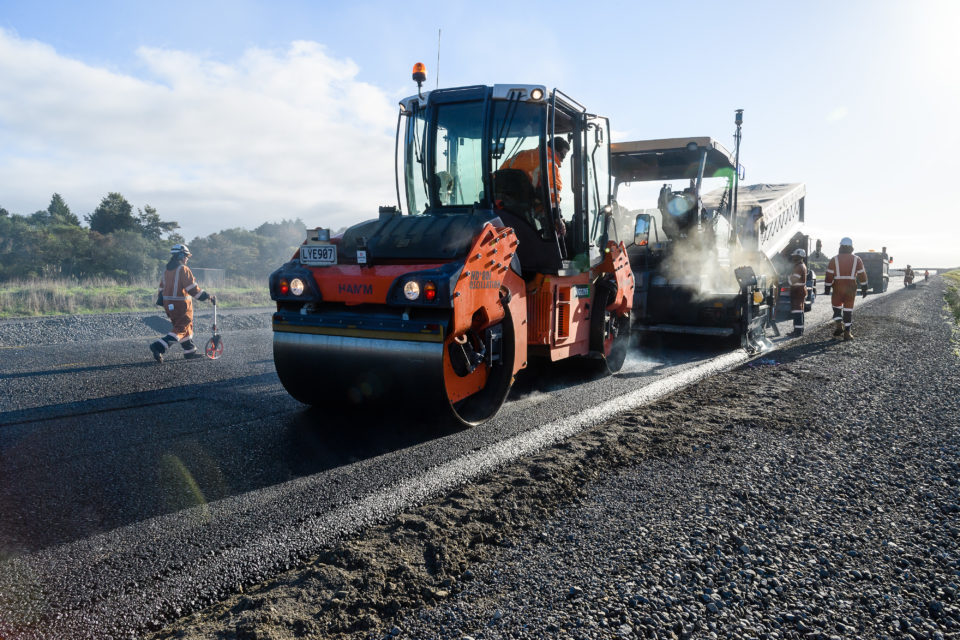By Alan Pollard, chief executive, Civil Contractors NZ.
The past couple of years have been tough. Following two years of a global pandemic, we have also had to deal with the social and economic consequences of government response plans and resulting backlash from sectors of the community.
We now live in a much more divided society, where personal choices about vaccines and mandates have impacted jobs.
The previously critical lack of skilled labour has become much worse as the border has remained closed. We also face supply chain disruptions, material costs escalations and general inflationary pressures (some imported, but a lot domestically driven).
Yes, these issues have seriously impacted the construction sector, putting people under strain as well as projects and businesses at risk. But opportunity arises from challenge, and I have heard civil contractors are the people the world turns to in a crisis.
Since the borders closed, the civil construction industry has invested heavily in programmes to attract, retain, and grow people and careers in the sector, resulting in some exceptional programmes to grow talent within the country.
Our recently released report, Developing a Skilled Civil Construction Workforce, identifies the opportunities ahead of the industry, the challenges the sector faces in onboarding and upskilling people. The approaches identified are often working in isolation and at small-scale, but they can be scaled up.
We have a great opportunity to resolve longstanding issues in attracting, developing and retaining skilled workers. It’s all industry-led, but a partnership approach supported by the Government. Implementing the report’s recommendations will result in a larger pool of potential workers, more clearly defined career pathways and well-serviced career entry points that set people up for success.
With industry working hard to create opportunities for Kiwis to begin rewarding long-term careers as skilled tradespeople and the impact of Covid still being felt hard, it is disappointing to see new government proposals adding yet more stress and risk to businesses when they can least afford it.
Already we have seen minimum sick leave entitlements increase to 10 days per annum, a new public holiday (Matariki) introduced, and the minimum wage yet again increase by $1.20 to $21.20 (an increase of six percent).
The Government has also announced a new plan to introduce an employee insurance scheme, designed to support workers with 80 percent of their income for up to seven months if they lose their job through no fault of their own (i.e. redundancy, layoff, health condition or disability).
The scheme is to offer a four-week notice period and four-week payment, at 80 percent of salary, from employers, and a further six months of financial support from the scheme, at 80 per cent of wages or a salary. It is to be funded by levies on wages and salaries, with both workers and employers paying an estimated 1.39 percent each.
Perhaps it’s worth considering whether these proposals are in everyone’s best interests in the longer term? But if implemented immediately they will add cost and complexity for businesses at a very difficult time after two years of confusion, chaos and change. Perhaps now just isn’t the best time.
That brings me to the Government’s proposed Fair Pay Agreements Bill, which looks to bring in changes to New Zealand’s labour market that will have a massive impact on already stressed businesses and that have the potential to take New Zealand backwards to the bad old days of the 1970s and 1980s.
The Labour majority government has now steamrolled the Bill through its first reading. It states that if 10 percent of workers in an industry sector (or 1000 workers) support it, a centralised collective fair pay agreement must be negotiated between a union and a “business representative” on pay, benefits, working conditions, terms and conditions of employment, and the like.
The “business representative” will bargain on behalf of all businesses and contractors in the industry (even if most of them don’t want it). The binding outcome would set pay and conditions for all businesses operating in a sector regardless of location. This could remove the ability of employers to negotiate directly with individual employees.
This rickety proposal is a slippery slope back to the bad old days where toxic and intractable conflict between employers and employees was rife.
A free and open labour market can serve us well. Why risk the gains that have been made? There is no doubt there are some poor employers, and we all want to see them identified and either change their behaviour or be removed. Why start from the premise that “all employers are bad”?
In the main, employers are focused on providing safe and rewarding workplaces, where employees can develop and grow. This benefits employers and employees alike. And for our economy it leads to a more productive workforce.
This is still only draft legislation, and it still needs to go through the usual Parliamentary process, including consideration by a Select Committee which will call for public submissions. CCNZ will be making a submission, and we encourage businesses to also have their say.
How about government and business working together to secure New Zealand’s future? Big sticks and changes without consultation don’t work. Incentives partnerships do.

